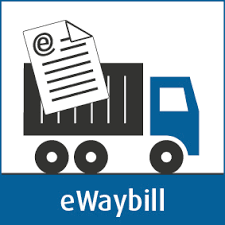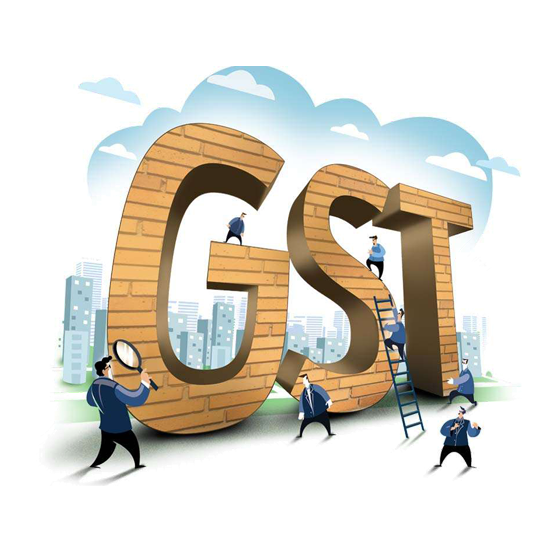- Business Startup
- Startup-Indian Entities
- Startup-Foreign Entities
- Business/Entity Conversion
- Business Registration
- Tax & ROC
- Yearly Tax Compliances
- Income Tax Return Filing
- ITR for Salaried Individuals/ Pensioner
- ITR for Capital Gain
- ITR for Companies
- ITR for House Property Income
- ITR for Income from Business
- ITR for Individuals having Share Trading
- ITR for NRIs and Resident with Foreign Income
- ITR for Partnership Firm/AOP/BOI
- ITR for Presumptive Income
- ITR for Speculation Business
- ITR for Trust, NGO and Companies
- Advisory on Tax Savings
- TDS Return Filings
- LTCG Filing and Advisory
- Income tax Notice Compliance
- Basic
- Standard
- Premium
- ITR for House Property Income and Other Source Income
- ITR for Capital Gain
- ITR for NRIs and Resident with Foreign Income
- ITR for Individuals having Share Trading or Casual Income
- ITR for Speculation Business
- ITR for Income from Business and Profession
- ITR for Presumptive Income
- ITR for Partnership Firm/AOP/BOI
- ITR for Companies
- ITR for Trust, NGO
- Advisory on Tax Savings
Yearly Tax Compliances
ITR for Salaried Individuals/ Pensioner
Income Tax Return Filing
- GST
- GST Registration (₹799)
- GST Accounting
- GST Return Filing
- GST Annual Return
- GST LUT Submission
- GST Taxpayer Registration
- GST Registration for Foreign Entity
- GST Registration Cancellation
- GST-Revocation of Cancellation
- GST Return Filing Packages
- E-way Bill Submission
- Ask an Expert-GST
GST Registration & Cancellation
- IPR
- Trademark
- Trademark Registration (₹5799)*
- Trademark (Individual) Registration
- Trademark with Logo Designers (Individual)
- Trademark with Logo Designers (Company)
- Trademark Objection Management
- Trademark Renewal
- Trademark Renewal (Company)
- MSME Compliance Trademark Registration
- Trademark Restoration
- Trademark Assignment
- Trademark Hearing
- Trademark Opposition
- Trademark Infringement
- Trademark Investigation
- Trademark Logo
- Copyright
- Copyright Registration
- Copyright Objection
- Computer Software Copyright
- Logo Copyright for Goods
- Songs Copyright
- Sound Recording Copyright
- Logo Copyright for Service
- Artistic Work/Painting Copyright
- Cinematography Copyright
- Copyright a Book
- Literature/Dramatic Copyright
- Music Notation Copyright
- Phrase/Slogan Copyright
- Symbol Copyright
- Patent
- Design
Trademark
- Trademark
- Compliance
- LLP Annual Compliance
- Winding up of Inactive LLP
- LLP Winding up by NCLT
Initial Compliance
General LLP Compliance
Changes in company
LLP Annual Compliance/ Closure
- Pay Roll
- Company
- Blog
TAX & ROC
To run a company, you need to adhere to statutory compliance. Therefore, annual compliance for businesses are needed to be filed before their due date. Taxcomate is a team of business compliance experts who can you.
ITR for Income from Business
ITR for Income from Business
- Overview
- Points to remember
- Process
ITR for Income from Business and Profession
The ITR-3 Form applies particularly to those Individuals and Hindu Undivided Families who have income from carrying on a profession or from Proprietary business. If an Individual/HUF is having income as a partner of a partnership firm that is carrying out business/profession, he cannot file ITR-3. In such a case, he is required to file ITR 2. About This Plan Reporting business income during return filing is critical to avoid any tax non-compliance. At the end of the year, businesses struggle to get their accounts in order. This premium ITR filing plan is designed to provide you professional help in preparing financial statements and filing business ITR. Further, our experts will assist you with payment of advance taxes and guide you on critical business financial planning to help maximize tax saving.1. Services Covered
- Account Summary – P&L and Balance Sheet (up to 250 entries per year)
- Advance Tax Payment (4 nos.)
- Expert Assisted Tax Filing for business and professionals
- Tax Savings & Planning Advice
- Documented follow up
- Excludes the Tax audit Fees
2. Who Should Buy
- Any business entity required to maintain books of accounts
- Small Businesses and Professionals requiring books of account
- Small businesses requiring Tax Audit including Derivative & intraday traders Taxcomate help you file your return using our proprietary Taxcomate product.
3. How It’s Done
- Purchase of plan
- Upload documents
- Financial Statements Preparation
- Review the computation sheet
- Return filed & acknowledgment generated
4. Documents To Be Submitted
- Bank statements for the financial year
- Income and Expense statements
- Auditor reports
- Bank statement if the interest received is above Rs. 10,000/-
Frequently Asked Questions
My company deducts the TDS. Do I still have to file my tax return?
Yes, deducting TDS and filing a tax return are two different things. In fact, you file a tax return to show that you've paid all the tax you needed to pay. The income tax return is also a very useful document when it comes to applying for a loan or visa.
Proprietorships are not regulated by any particular Act, hence there is no registration. Every buiness needs registration under Shop & Establishment Act whether it is providing a service or dealing in goods. Other registrations such as GST etc depend upon nature of product/service.
consequatur.
Which income tax return should I select for e-filing?
Great question! There are nine forms - ITR 1, 2, 2A, 3, 4, 4S, 5, 6 and 7 for each type of tax situation. Honestly, choosing the correct income tax form is a lot of work. Which is why if you are e filing with Taxcomate, we automatically decide the correct income tax return form.
How do I pay tax to the government?
You can pay tax to the government directly on the Income Tax Department website using your netbanking account with challan 280.
Can I file income tax returns for years I missed?
Yes, you can file income tax returns for the years you have missed. However, you can file previous year returns manually after contacting your Assessing Officer. For F.Y 2017-18, you can only e-file the income tax returns up to 31 March 2019. No past years' returns can be e-filed. .
What is ITR-V?
ITR-V is a 1-page document that you receive after e-filing your income tax return. You must print, sign and send it to the Income Tax Department within 120 days from e-filing your tax return.
I am a salaried individual and don't have a Form 16. How can I file my tax return?
You can still file your tax return on Taxcomate without a Form 16. You're just going to need your payslips.
Can I file ITR-1 with exempt agricultural income?
You can file ITR 1 if the agricultural income is up to Rs 5,000. For agricultural income exceeding Rs 5,000, you have to file ITR 2
Is it necessary to attach any documents along with the return of income?
ITR return forms are attachment less forms and, hence, the taxpayer is not required to attach any document (like proof of investment, TDS certificates, etc.) along with the return of income (whether filed manually or filed electronically). However, these documents should be retained by the taxpayer and should be produced before the tax authorities when demanded in situations like assessment, inquiry, etc.
If I have paid excess tax, how will it be refunded to me?
The excess tax paid can be claimed as refund by filing your Income-tax return. It will be refunded to you by crediting it in your bank account through ECS transfer. Don’t make mistakes in mentioning bank details such as account number,IFSC code etc in the ITR form.
Who can file tax return on Taxcomate ?
As per section 139(1) of the Income Tax Act, 1961 in the country, individuals whose total income during the previous year exceeds the maximum amount not chargeable to tax, should file their income tax returns (ITR).
a. Individuals who only have Salary income
b. Individuals who have switched jobs (Multiple Form 16)
c. Individuals having Income from Capital Gains (mutual funds & stocks), House Property, FD, Interest etc.
d. Individuals having Foreign Income (Onsite deputation), Foreign Assets, NRI
Is it mandatory for me to do the ITR efiling or can someone else do it on my behalf?
You can seek the help of chartered accountants and agencies dedicated to ITR filing. It is wiser not to allow anyone to have your PAN and password in order to prevent any kind of fraud. Also you can always take assistance from CA to file IT returns. With Taxcomate you can get an expert CA to calculate your taxes and e-file your tax return on your behalf.
Frequently Asked Questions
What is the due date to file business returns?
In case tax audit is applicable the due date is 30th September otherwise it is 31st July.
Proprietorships are not regulated by any particular Act, hence there is no registration. Every buiness needs registration under Shop & Establishment Act whether it is providing a service or dealing in goods. Other registrations such as GST etc depend upon nature of product/service.
consequatur.
I am running a business. I wish to know what is advance tax and when do i need to pay it?
The assessment of income of an year can be made only after year has passed, advance tax is pre payment of your tax liability in the year it is earned. If the tax liability is more than Rs 10,000 in a financial year then advance tax needs to be paid by assessee. The due dates are
- 15th June(15%)
- 15th September(45%)
- 15th December (75%)
- 15th March (100%)
Under this plan Taxcomate experts will help you access your advance tax liability and assist you in its timely payment.
Can I file a revised return to correct a mistake in original return filed?
Yes, return can be revised within a period of one year from the end of the relevant assessment year or before completion of the assessment whichever is earlier. Filing of revised return is not part of the plan. Plan buyer is required to provide full and accurate details to avoid the need for any rectification in the originally filed return.
Am I required to keep a copy of the return filed as proof and for how long?
Yes, under the Income-tax Act legal proceedings can be initiated up to 4 to 6 years (depending upon case to case) prior to the current financial year. However, in certain cases the proceedings can be initiated even after 6 years, hence, it is advised to preserve the copy of return for at least 6 years or maintain it as long as possible.
Are Audit and Financial statements preparation covered in the plan?
Prior to return filing, a summary consolidating all financial transactions is prepared. Day to day bookkeeping and audit does not form part of the plan. However on request Taxcomate team can assist with appointing a qualified Chartered Accountant eligible for providing audit services.
Points to remember while filing ITR
While filing the ITR, salaried persons need to keep several points in mind. According to Mittal, salaried persons should take care of following factors while filing ITR:
- Who should file ITR: In case the gross total income of an individual exceeds Rs 2,50,000 in the FY, subject to certain conditions, then he will be mandatorily required to file an income tax return. The limit is Rs 3,00,000 for senior citizens (Age: Between 60 – 80 Yrs ) and Rs 5,00,000 for super senior citizens (Age: more than 80 Yrs ). Further, if an individual wants to avail of any tax refund or has any assets outside India or wants to carry forward a loss under any head of income he will be required to file ITR.
- Choice of Right Form: The income tax department primarily provides the following for filing Income Tax Return viz., (1) ITR 1- is to be filed by a salaried individual, whose total income (including salary income and income from other sources) does not exceed INR 50 lacs. Further for filing ITR 1, the individual should not have more than one house property and his income from agriculture should not exceed INR 5000. (2) ITR 2- is to be filed by an individual if he has income from salary, more than one house property, income from capital gains and income from other sources (not having income from profits and gains of business or profession ).(3) ITR-3- is required to be filed by an individual if the individual has income from salary, house property, income from business or profession, capital gains and income from other sources. Therefore the individual is required to be very clear about the Form applicable for him.
- Tax Deducted at Source (TDS): TDS is deducted by the employer, bank. It can be checked by the individual on the website of TRACES. The salaried individual should make sure that the complete details of TDS deducted are getting reflected in 26AS as if the same is not getting reflected then the number of TDS being claimed may get disallowed.
- Submission of correct proofs: The person concerned should have genuine proofs of the amounts being claimed by him as a deduction for Eg: Rent receipt in case of claiming of HRA, health insurance premium paid, details of investments in mutual funds, home loan, life insurance, etc. the amount of Deductions and Investments declared to the company must have correct documentary proofs. As the claiming of deductions by furnishing wrong information might lead to a penalty ranging from 50% to 200%.
- Right Investment Planning and claiming of deductions under relevant sections: An individual should be very vigilant while making investments and should understand that each section has a specific limit up to which the deduction can be claimed. Eg: If the person pays life insurance premium, deposits money in provident fund and superannuation fund, mutual fund, repays housing loan (principal amount), etc. then he can claim deduction only up to the limit of Rs1,50,000, any excess investment made under the section cannot be claimed as a deduction. To claim a higher deduction from tax, he should invest in other sections. For example, Investment in the National Pension System, subject to the specified conditions, can allow him to claim additional deduction up to Rs 1,50,000.
- Disclosure of income: An individual should make proper disclosure of income while filing the ITR earned from various sources, including income from business or profession, capital gains, any prize or lottery or rental income from house property, etc. Any interest from the Saving Bank Deposit, Recurring Deposit, Fixed Deposit, or income from any other source like capital gains, etc. should be duly reported in the Income Tax Return. Any concealment of income or understatement of income may lead to a penalty of 50% of the tax to be paid and in case of any misreporting 200% of the tax is payable.
- Filing of Return within due date: Non-filing of Income Tax return within the due date may attract a penalty of Rs. 5,000 or more and interest at the rate of 1% on the outstanding amount of tax. Further, the individual may also lose the benefit of a set of losses if any.
- Furnishing Updated Particulars: The personal details such as PAN no., bank account, Email ID, and contact no. should be correctly mentioned. In case the details have changed over a period of time then the same should be updated, as one would receive the refund if any, in the bank account, the details of which have been furnished (so in case the previous bank account is changed, the refund amount will bounce), further all information as to the status of ITR will also be sent on the email id and phone no. provided.
ITR for Income from Business Registration
₹1,599.00
To make tax compliance easier, the income tax department has categorized taxpayers into many groups based on income and its source. So, you need to file your returns accordingly. Registers with ITR for Income from Business plan and enjoy the benefits
Benefits of filing Income TAX Returns ?
-
Avoid a maximum penalty of Rs 10,000, if your total income exceeds Rs 5 lakh.
-
Taxpayers are often served notices from the IT department for delayed & missed return submissions.
-
Most embassies and consulates require you to submit IT returns for the last 3 years.
-
You can carry forward losses against house property and depreciation.
-
Your Tax Return documents are proof of your financial investments and will be useful when you apply for a loan
-
You can claim tax refund; the earlier you file the sooner you will get the refund.


























